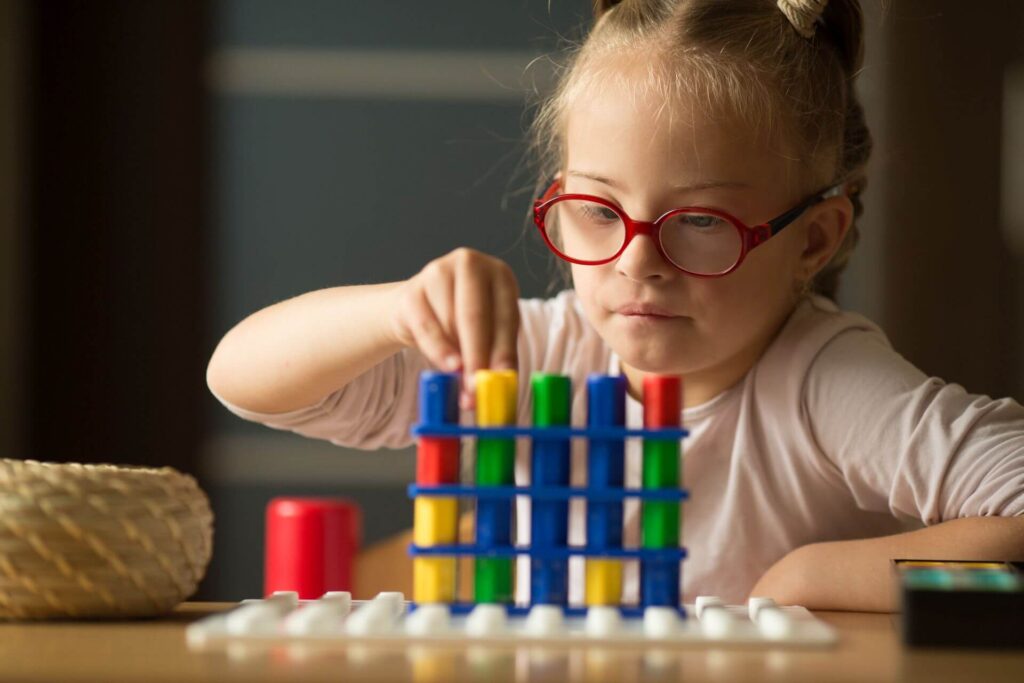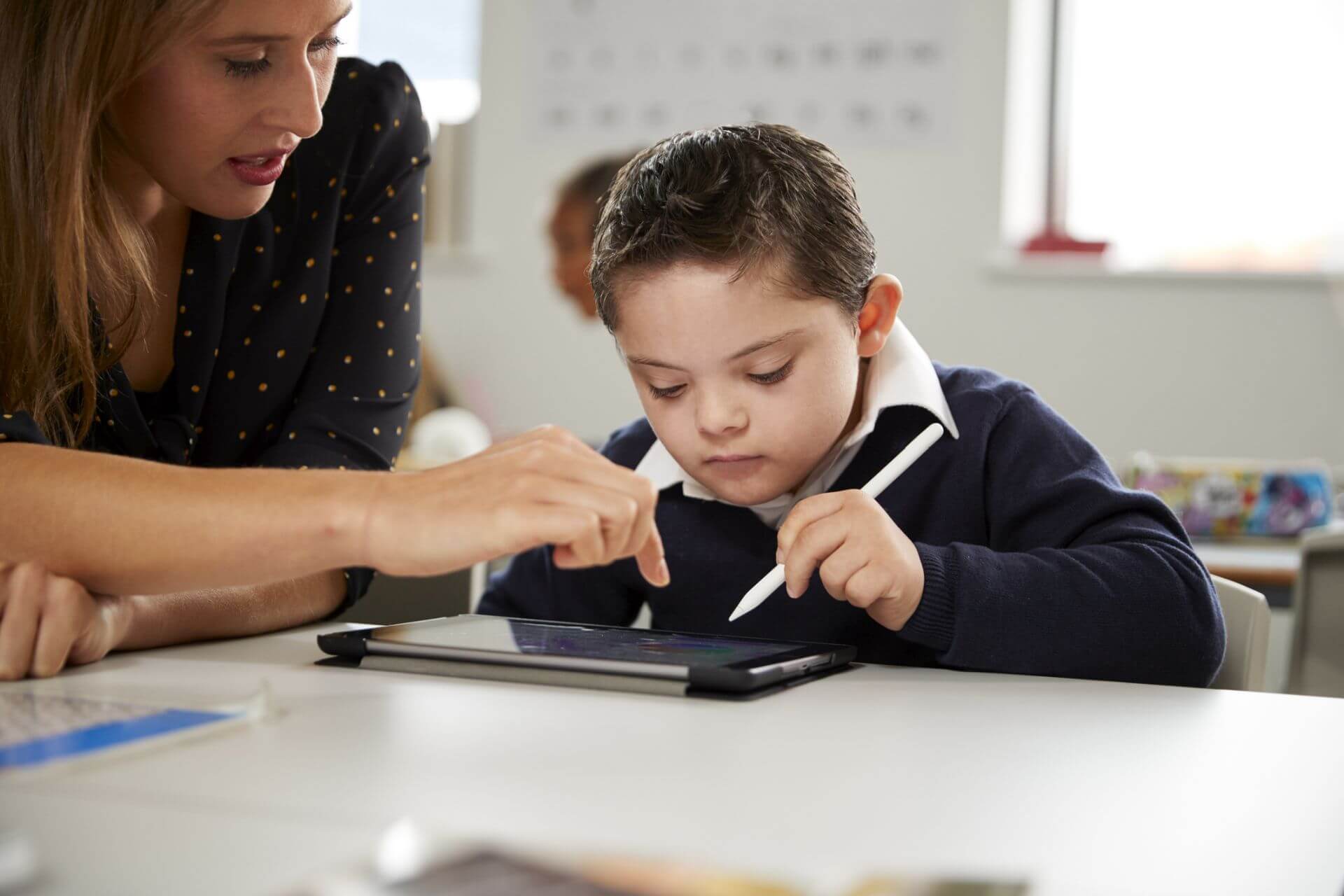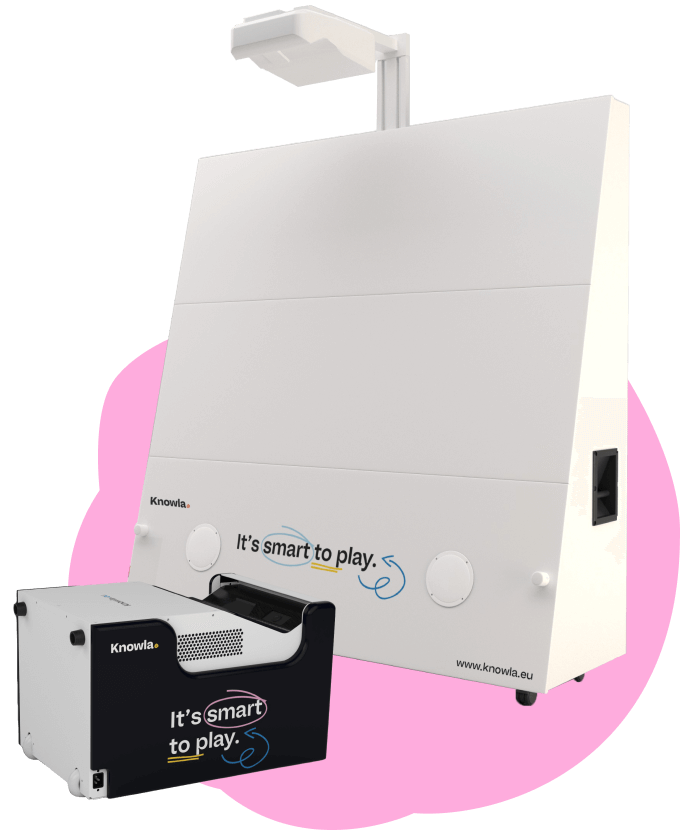We speak of special educational needs both when a student has difficulties in mastering a particular material and when he is gifted in a particular area. Such children require an individual approach.
What are special educational needs?
When we talk about special educational needs, we direct our thoughts toward children with certifications, disorders, or overt disabilities. Most often, they have learning difficulties and require assistance in functioning in society. However, this is not the only group of students who have special educational needs.
Having a specific certification, or qualifying disability, is of course the basis for providing appropriate additional learning support. Nevertheless, special needs may also be present in undiagnosed children. Circumstances such as health deterioration or other developmental, familial and environmental factors that may affect a student’s current mental preparation for class should also be taken into account.
Importantly, special educational needs are not a homogeneous group of needs, deficits and symptoms.
Special and specific educational needs
The distinction emerged in 1978, in a report by Mary Warnock, who wrote about special and specific learning difficulties.
Special educational needs result from a person’s health, developmental and cognitive factors. Due to its differences, it needs help, adaptation of the form and conditions of work. They concern, among other things. children:
- With motor disorders,
- With visual and hearing impairments,
- with intellectual disabilities,
- With cognitive deficits (dyslexia, dysgraphia, dysorthography, dyscalculia type),
- With language communication disorders,
- ADHD,
- with autism,
- With oppositional defiant disorder,
- With behavioral and emotional disorders,
- chronically ill,
- With eating disorders.
In contrast, students with special educational needs are usually in the intellectual, emotional and social norm. They do not require special teaching techniques or developmental support. Their specific needs arise from the natural diversity of people and the life experiences they have accumulated. They are an integration of biological-developmental factors with socio-cultural ones.

What influences specific educational needs
The first group of factors is internal.
Each of us has a different temperament, personality, developmental dynamics that affect cognitive style or learning style preference. In addition, at each stage of life, we have different needs to fulfill, which we can also explore on our educational path.
One of them is the need to belong to a forming group, among others. preschool group. Depending on how the integration goes, we may approach future events or meetings differently. All the time different elements of our personality are being formed. Any disturbance in the development of our psyche – or different dynamics of its development – can affect learning difficulties.
Specific educational needs are also influenced by cultural, social or family factors.
The same child will have different needs and function differently depending on the current economic situation, possible crisis experiences or critical events such as poverty or war. Any difficult event will affect the individual in some way, and consequently will also translate into his educational needs. The same can be said of the environment in which the child is raised or the social group he or she has joined. By trying to adapt to a particular group, we can put education on hold.
Minister’s decree on special educational needs
In the current and ministerial concept of special educational needs, we include both the special and specific needs defined above. Regardless of the cause of a particular difficulty, they represent a problem for the child to be solved in the further educational journey. Thus, include it instead of excluding it.
The Regulation of the Minister of National Education of August 9, 2017 on the principles of organization and provision of psychological and pedagogical assistance in public kindergartens, schools and institutions states:
§ 2. 1. Psychological and pedagogical assistance provided to a student in a kindergarten, school and institution consists in recognizing and meeting individual developmental and educational needs of the student, as well as recognizing individual psychophysical capabilities of the student and environmental factors affecting his/her functioning in the kindergarten, school and institution, in order to support the student’s developmental potential and create conditions for his/her active and full participation in the life of the kindergarten, school and institution and in the social environment.
(2) The need to cover a student with psychological and pedagogical assistance in a kindergarten, school and institution is due in particular:
1) from disability;
2) from social maladjustment;
3) from the risk of social maladjustment;
4) From behavioral or emotional disorders;
5) From special talents;
6) from specific learning difficulties;
7) from competence deficits and language impairments;
8) from a chronic disease;
9) from crisis or traumatic situations;
10) From educational failures;
11) from environmental neglect related to the living situation of the student and his family, leisure activities and community contacts;
12) from adaptation difficulties associated with cultural differences or with a change in the educational environment, including those associated with previous education abroad.
Are special educational needs just difficulties?
Don’t. Special educational needs also apply to people who are gifted in a particular field and require support in developing their passions and achieving achievements.
When thinking about disorders and disabilities, we should not only have deficits and shortcomings in front of our eyes. Each child has his own pool of talents and abilities that he can develop. Just because it has problems in one area doesn’t mean it will have similar problems in another.
How to meet special education needs?
Special educational needs are extremely diverse. Each of the aforementioned groups will require different support.
The basis of any special action should be the diagnosis of the difficulties and abilities of the student, including the collection of relevant information from the teaching and psychological staff and parents. A possible ruling received by a specialist may be important. Only on this basis can changes in the educational process be consciously implemented.
Writing down the difficulties, abilities and changes made is very important, because it allows you to later verify the effectiveness of the measures and modify them if necessary.
Examples of supporting people with SEN
- Adaptation of school space. It can refer to facilities for mobility disabilities, as well as quieting rooms or rooms adapted for developing students’ talents.
- Establish open rules of conduct and evaluation.
- Organization of remedial or interest development classes. Encouraging participation in contests or other local initiatives.
- Appreciation of efforts. Constructive criticism and pointing out further areas of work.
- Integrating the classroom.
- Enabling people to learn at their own pace.
- Adaptation of materials, working methods and educational aids to the needs of the student.
Knowla at the service of special educational needs
Technology can stimulate, interest and enhance the learning process. It allows education in an accessible way and encourages students to interact with the material presented.
When creating the Knowla Box solution, we tried to focus on smart entertainment, during which children actively physically explore a variety of thematic issues. While playing, throwing balls or making precise pen movements, they discover new knowledge and train their motor skills in the process.
On top of that, there are whole sets of different applications designed to help develop various abilities, among others. Planet SEN package, Planet Contrast, Planet EMO, Planet JG, which include activity sets with different adjustments under SEN. We created all this in consultation with specialists in their fields and users with special educational needs themselves.
Want to learn more: https://knowla.eu/knowla-box/
Sources:
- https://isap.sejm.gov.pl/isap.nsf/download.xsp/WDU20170001591/O/D20171591.pdf
- https://depot.ceon.pl/bitstream/handle/123456789/7781/Dziecko_ze_specjalnymi_potrzebami_300_50.pdf?sequence=1
- https://repozytorium.amu.edu.pl/server/api/core/bitstreams/8a77b8ac-d204-472d-a827-b52dfa22cc00/content
- Cęcelek, G. (2022). Use of modern information technologies in education, diagnosis and pedagogical therapy. Culture and Education, 20(2), 43-55.


